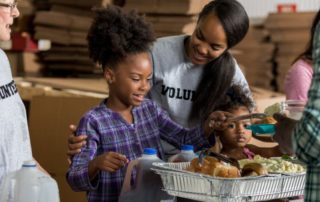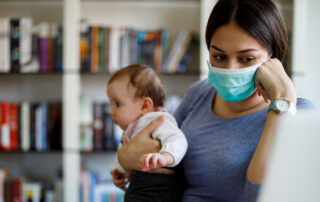Widespread Decline in Household Income During COVID-19 Pandemic Contributes to Food Insufficiency Among Families
COVID-19 has had a devastating impact on the economic security and well-being of families. In addition to finding and sustaining employment, many families are struggling with food insufficiency, a direct consequence of lost earnings. Nationally, more than 37 million Americans, including more than 11 million children are food insecure.











